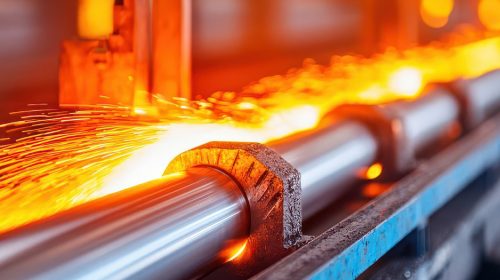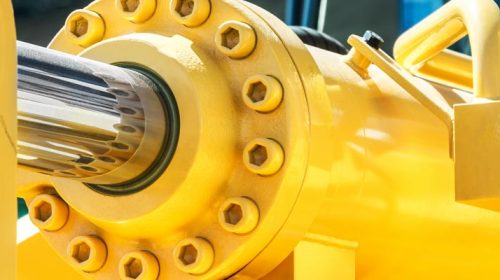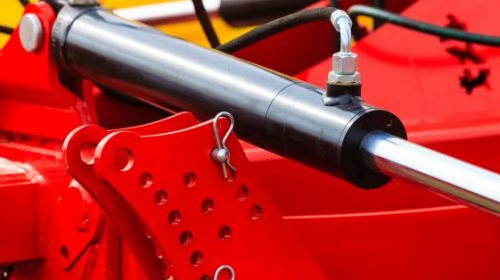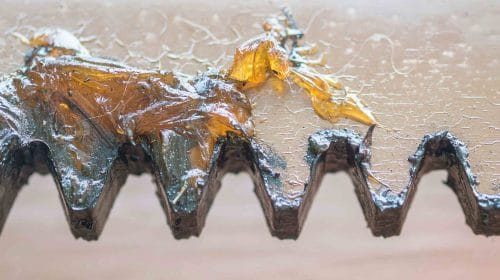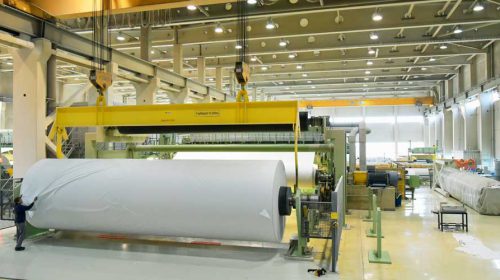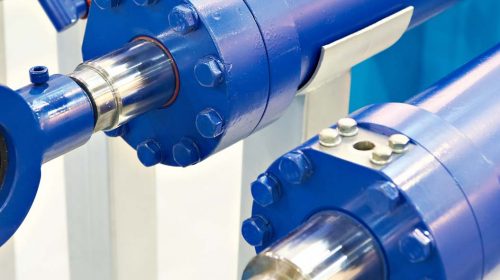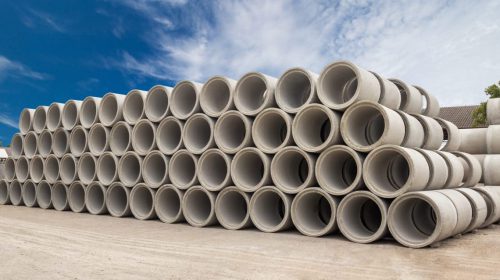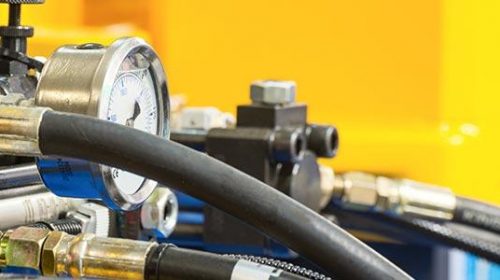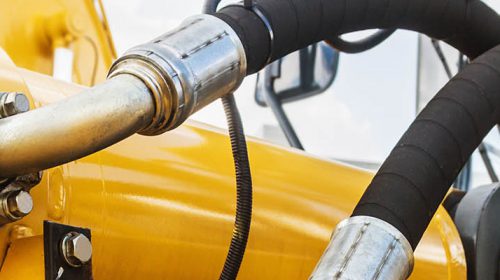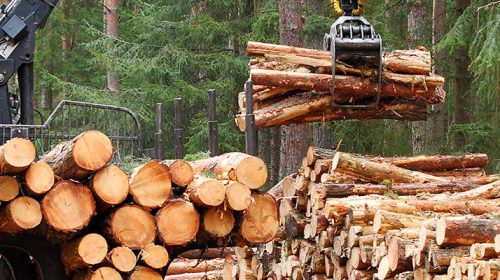The hydraulic fluid is the most important component in a hydraulic system. Choosing the right hydraulic fluid is crucial to guarantee the best performance and efficiency of the system. Each fluid has its specific characteristics in terms of viscosity, suitable operating conditions, anti-wear properties, etc. In this article we offer valuable tips and tricks to select the right fluid for your hydraulic system.
The hydraulic fluid (HF) is a crucial element in every hydraulic system because it influences important performance parameters such as the power transmission, lubrication, heat dissipation, transport of debris, contamination and sludge formation.
To select the best hydraulic fluid you must take into account the operating conditions and requirements of your system. Furthermore you should consider applicable safety- and environmental conditions and regulations.
How hydraulic oils influence your system performance
The fluid and the components of a hydraulic system are one. Together they determine the system efficiency and lifetime. The critical elements of a hydraulic fluid are the fluid type, viscosity and quality.
A hydraulic system that runs on a bad matching fluid suffers from:
- decreased efficiency,
- lack of lubrication,
- reduced components lifetime,
- corrosion, sludge and varnish,
- heat generation
Next to the fluid properties, the level of contamination is equally crucial for the performance of the system and the resistance to wear of pump and components.
Viscosity of hydraulic fluids is key
Although various fluid properties have an impact on different performance functions, the viscosity of the hydraulic fluid is a key element. The fluid viscosity affects hydraulic systems in several ways:
- volumetric efficiency (=efficiency in relation with volume loss due to internal leakages),
- mechanical efficiency (=efficiency in relation with mechanical loss due to internal friction),
- (elasto)hydrodynamic and boundary lubrication,
- cavitation,
- heat dissipation,
- air release,
- filterability,
- …

If the hydraulic fluid viscosity is too low, the oil film will be too thin causing direct metal to metal contact which leads to excessive wear on components. Low viscosity fluids also increase the risk of internal leakages generating a lower volumetric efficiency of pumps and motors.
If the fluid viscosity is too high, the system will suffer from a sluggish movement and a reduced mechanical efficiency. This generates energy losses and unnecessary heat generation. Other negative effects of a high fluid viscosity are cavitation, poor air release and inadequate lubrication.
The HF viscosity is influenced by ambient and operating temperature and system design. High temperatures result in lower viscosity and vice versa. Choosing a hydraulic fluid with the right viscosity is primordial for the overall efficiency of the hydraulic system. The fluid viscosity determines both the mechanical efficiency and the volumetric efficiency and sets the limits of the optimum operating range of a hydraulic system.
Other crucial parameters of hydraulic fluids
Next to the viscosity, a hydraulic fluid has several other parameters that influence system performance:
- Anti-wear properties: anti-wear additives form a thin reactive layer on the surface to prevent direct metal-to-metal contact. There are two types: Zn based (zinc diakyl dithio phosphate ZDDP) and Zn-free based. Zn based additives are considers as the most common, while Zn-free additives are recommended for environmental reasons or in case of corrosion or hydrolysis problems.
- Viscosity Index (VI): value that indicates the effect of temperature on the viscosity; high VI fluids maintain their viscosity relatively well with temperature changes.
- Thermal and oxidation stability: chemical reaction of O2 with oil form acidic byproducts. The rate of oxidation is influenced by high temperature, water and wear metals (catalysts).
- Air release: the ability of the oil to release enclosed air. Air causes poor system efficiency and cavitation.
- Foaming: after the oil is agitated and aerated, it generates a foam. This is a common problem in hydraulic system. Influencing parameters are water, contamination, degraded oil components, air and system design.
- Filtrability: ability to pass through a filter to evacuate particles.
- Demulsibilty: ability to release water which is important in humid climates.
- Rust and corrosion inhibition: ability of the HF to prevent rust and corrosion. Rust inhibitors will form a thin layer on the metal surfaces to prevent rust.
- Material compatibility: Many different rubber and elastomer materials are used in hoses, accumulator, gaskets and seals. The HF should be tested on seal & elastomer compatibility.
Conclusion: how to select the right hydraulic fluid?
To select the most appropriate fluid for your hydraulic system, follow the next steps:
- Select the right viscosity at the given operating temperatures to ensure the highest efficiency and to meet the system requirements.
- Select the suitable AW additives: Zn or Zn free anti-wear protection additives.
- Check on viscosity index. In case of extreme temperature changes or harsh operation conditions, hydraulic oils with a high viscosity are the best choice.
- Choose the adequate contamination control and monitoring properties to secure the lifetime of hydraulic components and fluid.
- Check on special requirements or regulations such as the use of fire-resistant or environmentally friendly hydraulic fluids. Often these conditions will have influence on the hydraulic fluid type.



